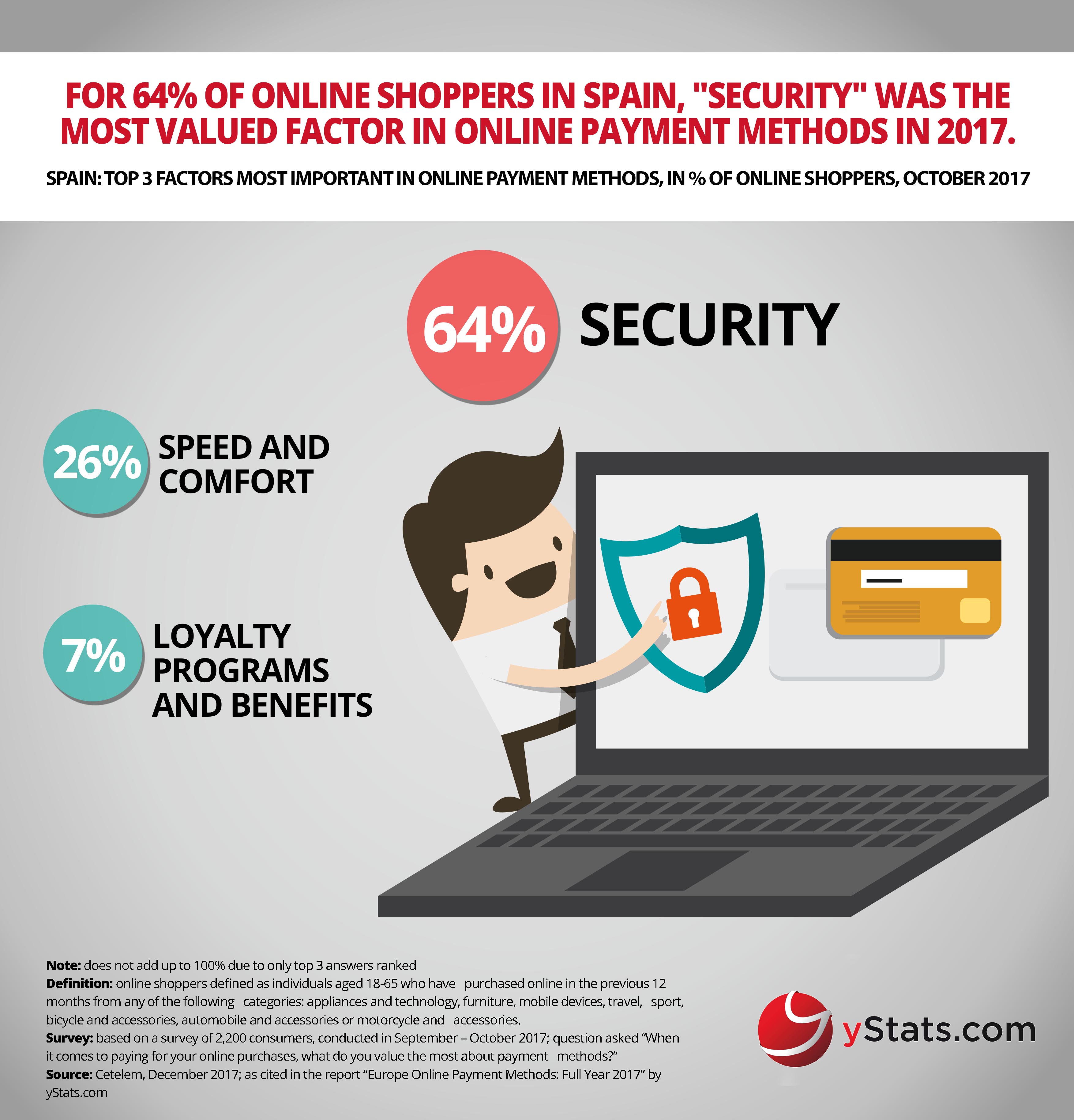“Europe Online Payment Methods: Full Year 2017” is a new report from secondary market research company yStats.com, based in Hamburg, Germany. The publication synthesizes information published last year regarding online and mobile payments in Europe and reveals how the preferences of online shoppers vary across 20+ markets of the region.
Online buyers in Europe show some variance when it comes to choosing a method to pay a merchant in E-Commerce. According to a cross-country survey cited in the yStats.com report, digital wallets such as PayPal and payment cards are the two most preferred payment methods for the whole region, but a more detailed look into 20+ countries reveals significant differences. For instance, consumers in the German-speaking nations show strong preference for paying upon the receipt of an invoice, in addition to PayPal and payment cards. Local banking method iDEAL maintains a strong lead in the Netherlands, while in selected countries of Eastern Europe, the growth of online card or E-Wallet payments is still challenged by consumers’ preference for cash on delivery.
Recent regulatory changes in the EU are expected to have a major impact on the region’s payment landscape. According to sources cited in the yStats.com report, competition among payment providers is projected to intensify, and payment innovation could see a major boost. Consumers’ adoption of emerging payment methods such as mobile wallets is gradually taking off, especially in the Nordics and the UK. Furthermore, cryptocurrencies are gaining awareness as a new payment method in countries such as Russia, while on a regionwide level around one in ten digital buyers showed interest in this form of payment.

Both convenience of payment methods and their security are the consumers’ major considerations when paying online. Even in the advanced digital commerce markets such as the UK and France online shoppers show concern over the safety of their payment details amidst the growth of card-not-present fraud.


